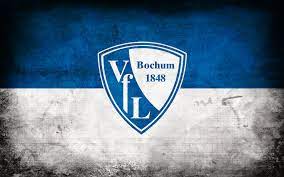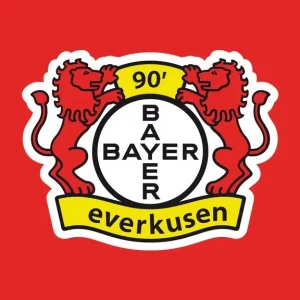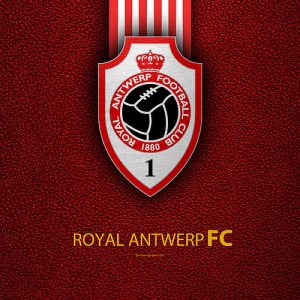Liverpool Football Club, often simply referred to as Liverpool FC, has been a cornerstone in the world of football since its inception in 1892. Renowned for its rich history, passionate fanbase, and remarkable achievements, this club from Merseyside has carved a significant niche in both domestic and international competitions. As we delve into the rise of Liverpool FC, we will explore its illustrious past, transformative moments, and the impactful figures that have shaped its legacy 23WIN
Historical Context: The Foundation and Early Years of Liverpool FC
To truly appreciate the rise of Liverpool Football Club, we must first understand the historical context surrounding its formation and the socio-political climate of England during the late 19th century. Founded in 1892 following a split from Everton FC, Liverpool was initially established to fill the void left by its local rivals at Anfield.
This early period laid the groundwork for what would become one of the most storied franchises in sports history.
The Formation of Liverpool FC
The emergence of Liverpool Football Club can be traced back to a dispute between Everton FC and John Houlding, the owner of Anfield. When Everton moved to Goodison Park, Houlding decided to form a new team to play at Anfield. Thus, Liverpool FC was born.
From its early days, the club embraced an ethos centered around community, passion, and excellence. This ethos attracted dedicated supporters who would rally behind the team through thick and thin.
The ambition to compete in the Football League quickly turned into success. Within just a few years, Liverpool won its first league title in 1901. This triumph marked the beginning of a fierce rivalry with other clubs and solidified their position as a serious contender in English football.
A Robust Early Success
The early 20th century was a golden era for Liverpool FC. The club continued to build on its initial successes, winning numerous titles and establishing itself as a force in English football.
Under the management of Tom Watson, Liverpool adopted a progressive approach to player recruitment and training. Watson emphasized the importance of teamwork, and his methods paid off as the team secured multiple league championships in the following years.
During this time, Liverpool also began to develop its intense connection with fans, fostering an environment steeped in loyalty and passion. The famous “You’ll Never Walk Alone” anthem emerged during this period, becoming a hallmark of the club’s identity and culture.
Impact of the Great War
The outbreak of World War I disrupted normal life in England, including football. Many players enlisted, and the league was suspended. The war cast a shadow over sports, but the resilience of Liverpool FC shone through.
Post-war, the club faced challenges, such as financial difficulties and a shift in player dynamics. However, Liverpool emerged stronger, embracing a new generation of talent that would soon transform the landscape of English football. The return of competitive football in the 1920s saw an immediate resurgence for Liverpool FC, which continued its reputation as a formidable competitor.
The Glory Years: Dominance in the 1970s and 1980s
As we move further into the timeline of Liverpool FC, the 1970s and 1980s stand out as an era of unparalleled success. During these two decades, the club not only dominated English football but also made a lasting impact on European competitions.
This period can be characterized by iconic players, innovative management, and the establishment of a footballing philosophy that continues to resonate today.
Key Figures: Players and Managers Who Shaped the Era
The influence of legendary managers such as Bill Shankly and Bob Paisley cannot be overstated. These men were instrumental in cultivating a winning mentality that permeated the entire club.
Shankly’s arrival in the late 1950s transformed Liverpool’s fortunes. He introduced a strong emphasis on fitness, teamwork, and fan engagement. His motivational speeches ignited a fire within the players, creating a bond that translated into remarkable performances on the pitch.
Bob Paisley, who succeeded Shankly, further developed this foundation. Under his stewardship, Liverpool FC achieved remarkable success both domestically and in Europe. Paisley’s tactical acumen and ability to nurture talent led to the emergence of several key players, including Kenny Dalglish, who became synonymous with the club’s success.
Tactical Evolution and Style of Play
During this golden era, Liverpool FC evolved tactically, showcasing a dynamic style of play that combined skill, flair, and strategic nous. The team’s attacking prowess became a hallmark, creating an exhilarating spectacle for fans and opponents alike.
One of the defining features of Liverpool’s strategy was its focus on pressing high up the pitch. This relentless pursuit of possession forced opponents into errors, allowing Liverpool to capitalize on transitional opportunities. The philosophy of playing attractive attacking football while maintaining defensive solidity became the bedrock of their success.
Additionally, the introduction of innovative training techniques and methodologies played a crucial role in shaping the team. Coaches placed a premium on physical conditioning, emphasizing endurance and agility, which allowed players to thrive in high-pressure situations.
European Glory: The Road to Becoming Kings of Europe
Liverpool FC’s prominence extended beyond domestic competitions. The club’s inaugural European Cup victory came in 1977, marking a pivotal moment in its history Liverpool Football Club. This triumph not only cemented Liverpool’s status in England but also heralded its arrival on the continental stage .
The epic clashes against some of Europe’s elite clubs showcased the team’s resilience and determination. From dramatic comebacks to thrilling encounters, Liverpool’s European journey is filled with unforgettable moments that have become part of football folklore. The iconic 1984 European Cup final against AS Roma remains a testament to the indomitable spirit of Liverpool FC.
Throughout this era, the team’s success was fueled by a passionate fan base that filled Anfield week in and week out, creating an electric atmosphere that inspired players to elevate their game.





